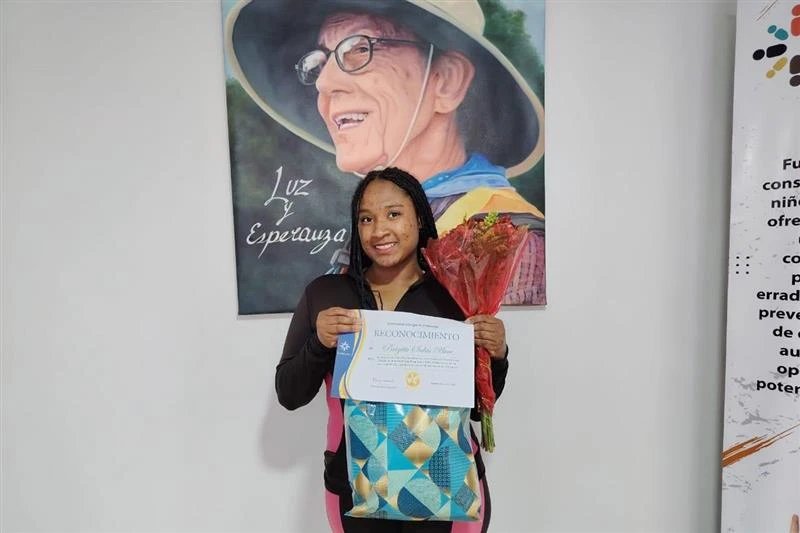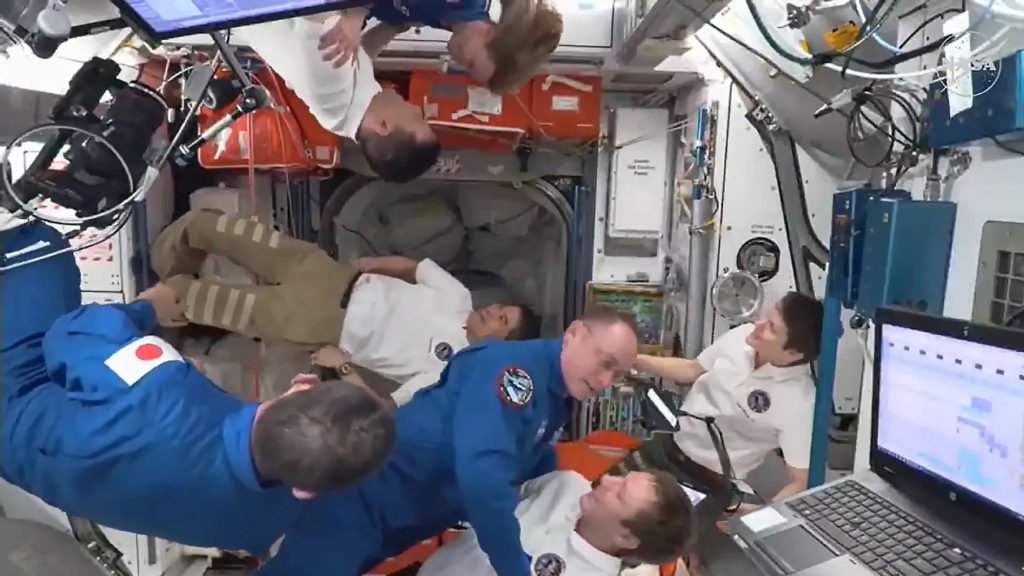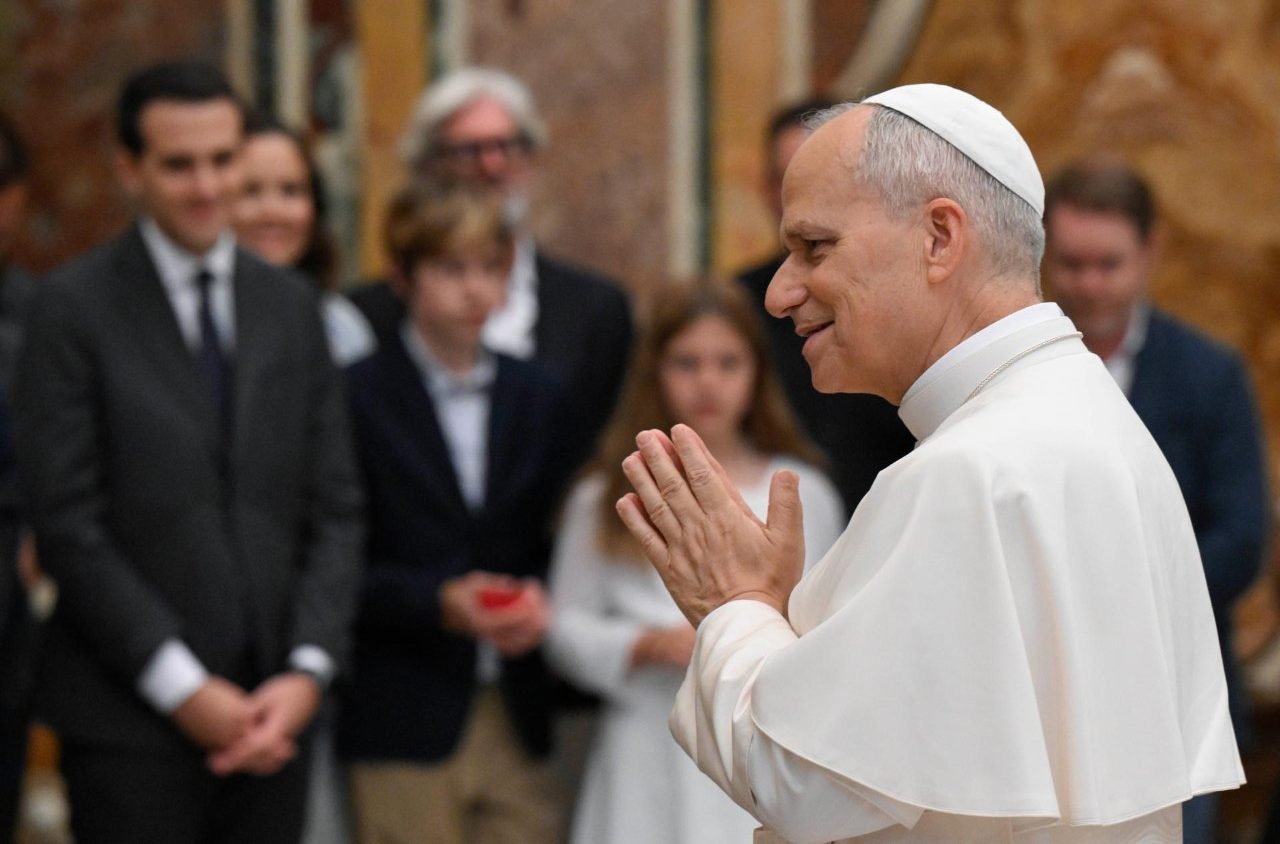Washington, D.C. Newsroom, Aug 2, 2025 /
06:00 am
Once seen as only recipients of aid, mothers in underprivileged areas across the globe are becoming agents of change as the Catholic nonprofit Unbound empowers them to create paths out of poverty and serve as community leaders.
“From our founding in 1981, our mission, our reason of being, our approach from our founders, has been driven by a core belief in letting the people that we support make the decisions,” Ashley Hufft, president and CEO of Unbound, told CNA.
“It stems in part from their own faith, from Catholic social teaching, but those closest to the problem … make the decisions,” she said.
To further execute its mission, Unbound has implemented a number of programs including Poverty Stoplight and Agents of Change that keep the decision-making power in the hands of those who can “effectively improve their families best” — mothers.

Poverty Stoplight
Unbound is “driven by empowerment, dignity of the person, [and] goal setting,” Hufft said.
The organization advanced this mission through a partnership with nonprofit Fundación Paraguaya and its coaching tool, Poverty Stoplight.
“What Poverty Stoplight has done with this partnership has brought us a tool … for the families to help better define what the goals are that tie to indicators of multidimensional poverty, help set their goals, and help see goal by goal achievement,” Hufft said.
Unbound works “in 16 countries and with over a quarter of a million families. So techniques and methods that work at a small scale don’t necessarily work at that scale,” Dan Pearson, chief international programs officer of Unbound, told CNA.
As of June, Unbound is the largest implementer of the Poverty Stoplight with more than 250,000 participants.
The first step of the program is for “the families themselves [to] determine the dimensions of poverty in their area,” Pearson said. “We know that poverty is not just about money. It’s about a whole range of lack of opportunities and lack of choices.”
They determine the most relevant indicators of poverty within their specific location. The families examine key indicators including income, employment, housing, education, and health to get a better idea of where they are at.
Then the mothers and families themselves define what “poverty,” “extreme poverty,” and “no poverty” actually mean to them, which Pearson called an “eye-opening” step.
“It surprised us that most of the families we serve never had a clear picture of what they were trying to achieve. They see the wealthy people on TV, and they know that’s probably not where they’re going to get.” Pearson asked: “But, what are they trying to get to? What would that look like tangibly?”
“Then the third step is self-assessing,” Pearson said. Families decide what areas in their lives are “red” for extreme poverty, “yellow” for poverty, or “green” for no poverty. “With up to 50 indicators in each location, families found that they were already green in some areas.”
(Story continues below)
Subscribe to our daily newsletter
After finishing the assessment, families set priorities. They are given a “life map” that shows the “red, yellow, and green dots for each of the indicators, and they identify which of those they want to focus on now.”

They then receive a cash transfer from Unbound to aid their newly established goals. “Having the certainty of some income from us helps them do longer-term planning, because that decision-making horizon extends by weeks or months. And we make better decisions when we have a longer-term horizon like that,” Pearson said.
A June assessment found that since implementing Poverty Stoplight in 2020, Unbound “families have logged close to 300,000 achievements,” Hufft said. Meaning their indicators have moved “from extreme poverty to no poverty, or poverty to no poverty.”
Pearson attributed the success to the fact that “the families themselves retain control over the decisions that impact their lives.”
“Ultimately the families, and particularly the mothers … are the experts,” he said.
Agents of Change
The mothers are “not doing it alone by any means,” Hufft said.
Unbound offers direct guidance through its local teams that provide training, support, and resources. But what is especially unique is that the families going through Unbound programs work together for assistance and encouragement.
In 2001, Unbound started its small-group model in India, placing 25 to 30 mothers in groups to meet monthly for extra support. Now, there are more than 11,000 groups across the globe.
“As we started to see some success with the Poverty Stoplight at the household level … we were trying to figure out then how [to] take that to the community level, again, without sacrificing the control that they have over these decisions,” Pearson said. “We looked to those small groups of women, and we created a program first called Agents of Change.”
The program places women who know their local challenges best at the forefront of coming up with solutions. They determine how funds are allocated to support community ideas that would improve lives and help break the cycle of poverty.

Unbound recently set aside a $500,000 innovation fund to fund larger approved projects. It will fund 10-12 grants ranging from $20,000 to $60,000, focused on addressing urgent needs identified by those experiencing them.
“The difference, though, is that they don’t submit those proposals to us, and they don’t submit those proposals to our donors or to our partners,” Pearson said.
“Our partners overseas work with the communities to select one representative from each country,” who then make up the committees that receive the program proposals. They decide which to fund, giving the women “the experience of being on the funder side, of having to weigh competing priorities within the community.”
The approved grants from the innovation fund will help thousands, including 600 families in San Marcos, Guatemala, that will receive access to clean water thanks to the “Sustainable and Accessible Water Supply System: Source of Life” program.
Another approved proposal is called “Disability Is Not Inability” developed in Tanzania that is “equipping a technical center for children with special needs” to help 100 Unbound sponsored and non-sponsored students.
Future of Unbound
“We’re just scratching the surface of what’s possible and that our responsibility in international nonprofits is to look for new ways to create a framework where the community itself can take control of their futures,” Hufft said.
“One of our strategic goals is elimination of poverty. If you look overall at the state of our world and … at the numbers of people living in extreme poverty, it does seem overwhelming,” Hufft said. But “what Unbound is showing, with data now because of Poverty Stoplight, it is possible.”
“When you take it family by family, individual by individual, it’s possible,” Hufft concluded.





